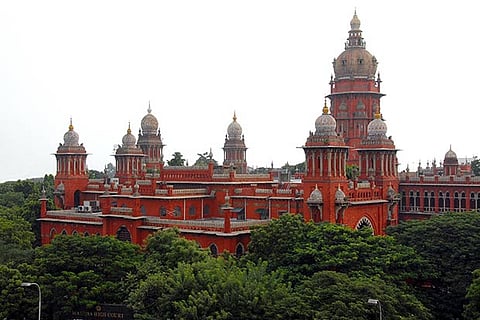

Chennai
The first bench comprising Chief Justice Indira Banerjee and Justice M Sundar, while dealing with government submission over confusion in the interim order passed on May 12, said, “It is thus clarified that transfer of plots which had been registered as house sites before October 21, 2016, except those which have been registered in violation of interim order passed by this court may be registered.”
Section 22-A deals with refusal to register instrument relating to transfer of ownership of lands converted as house sites without the permission for development of such land from planning authority concerned.
The operative portion of the May 12 interim order said, “Considering that there is a statutory provision which has now come into force and rules have also been framed by the state government for regularisation of unauthorised plots, we deem it appropriate to direct that plots may be registered strictly in accordance with section 22-A of the Registration Act, read with the Tamil Nadu Regularisation of Unapproved Layouts and Plots Rules, 2017 and the Tamil Nadu Change of Land Use (From Agriculture to Non-Agriculture Purposes in Non-Planning Areas) Rules, 2017.”
The bench in its order also held that Rule 15 of TN Regularisation of Unapproved layout and plots Rules 2017, provides that, when no regularisation is ordered under the said rules for unapproved plots or layout then such unapproved plot or layout shall not be registered under the Registration Act 1908.
It may be noted that the bench in May this year on citing the notification of a new set of rules to regularise unapproved plots and layouts in Tamil Nadu, had permitted the sale and resale of such sites on the condition that they are strictly in accordance with rules in a May 4 notification.
It had held then that registration of a plot in an unapproved area between the court’s blanket ban order of September 9, 2016 and another order of March 28, 2017, relaxing the ban, would be a nullity.
Centre, state directed to file report on steps taken to protect wetlands in TN
The Madras High Court, on taking suo motu cognisance of a Supreme Court direction to monitor the management of wetlands, directed the Union government and the state to file a report about the steps being taken in respect of Ramsar sites in Tamil Nadu.
The first bench comprising Chief Justice Indira Banerjee and Justice M Sundar, on recording the apex court judgment, said, “In so far as the Ramsar Convention sites are concerned, since these are all matters of international heritage it might be more appropriate if the concerned high court monitors the management of these sites at least till there is some visible improvement,” issued notice to all relevant authorities and posted the case for further hearing to August 21.
The Supreme Court in its order had noted “while huge amounts appear to have been spent to the extent of Rs 945.95 crore, it appears from a reading of the affidavit that not much improvement seems to have been made at least on the ground,” and urged the Chief Justice of the concerned High Court to treat the affidavit as a suo motu public interest petition and if necessary, appoint an amicus to assist the court so as to ensure that the Ramsar Convention sites, within their jurisdiction, are properly maintained.”
The Supreme Court had also directed the Registry to make a photocopy of the affidavit filed by the Union of India and send it to all the high courts. As per the Ramsar list, Point Calimere wildlife and bird sanctuary is considered as one of the last remnants of dry evergreen forests and was marked for conservation. The Convention on Wetlands, signed in Ramsar, Iran, in 1971, is an intergovernmental treaty, which provides the framework for national action and international cooperation for the conservation and wise use of wetlands.
Visit news.dtnext.in to explore our interactive epaper!
Download the DT Next app for more exciting features!
Click here for iOS
Click here for Android